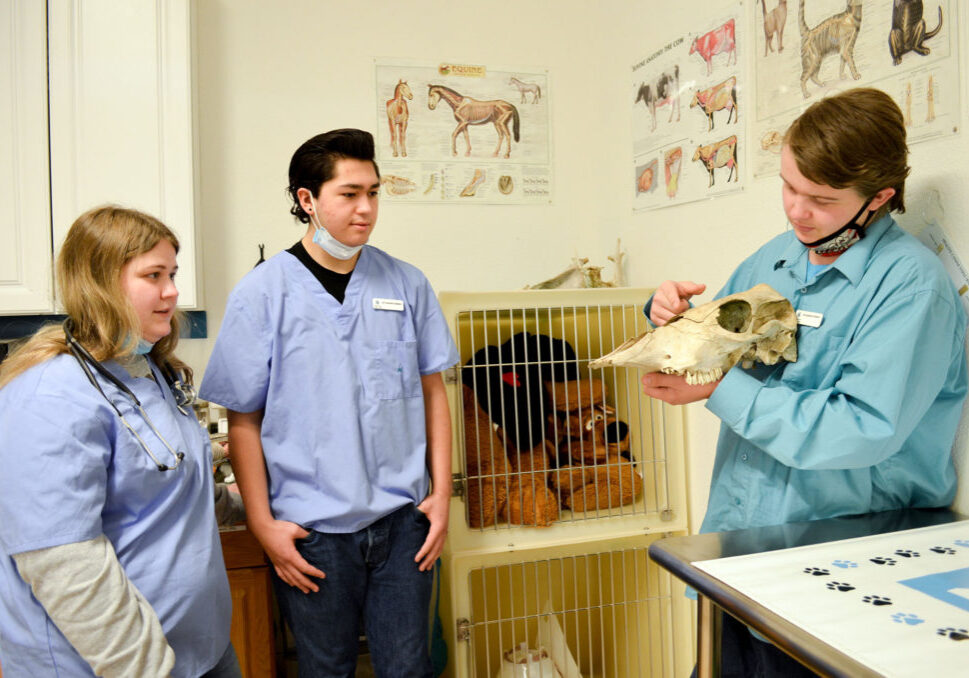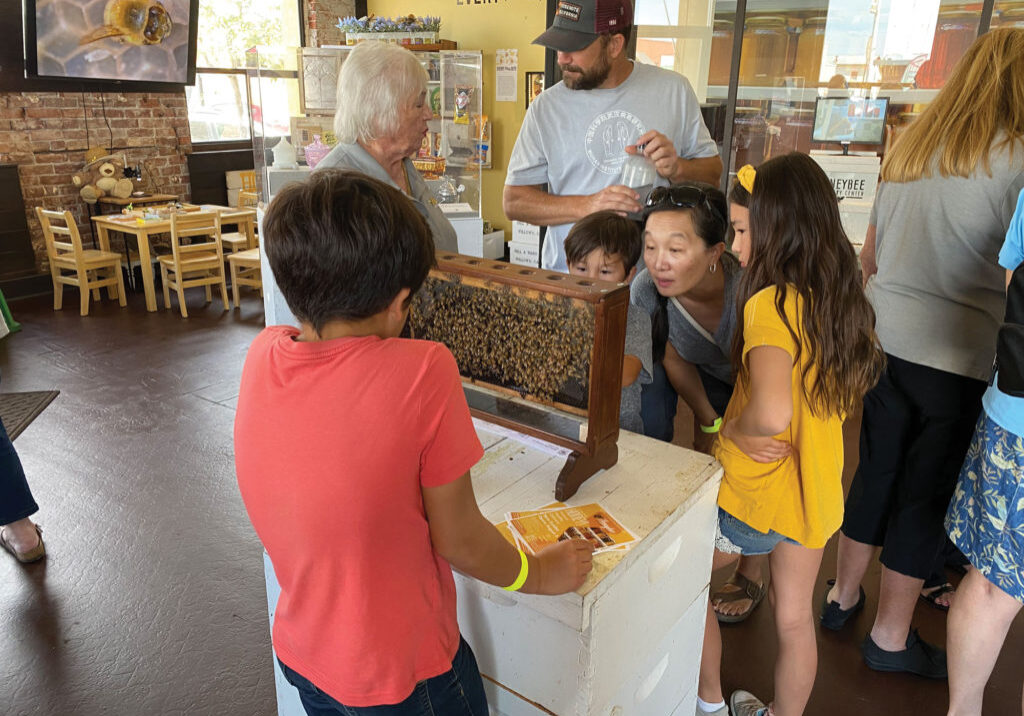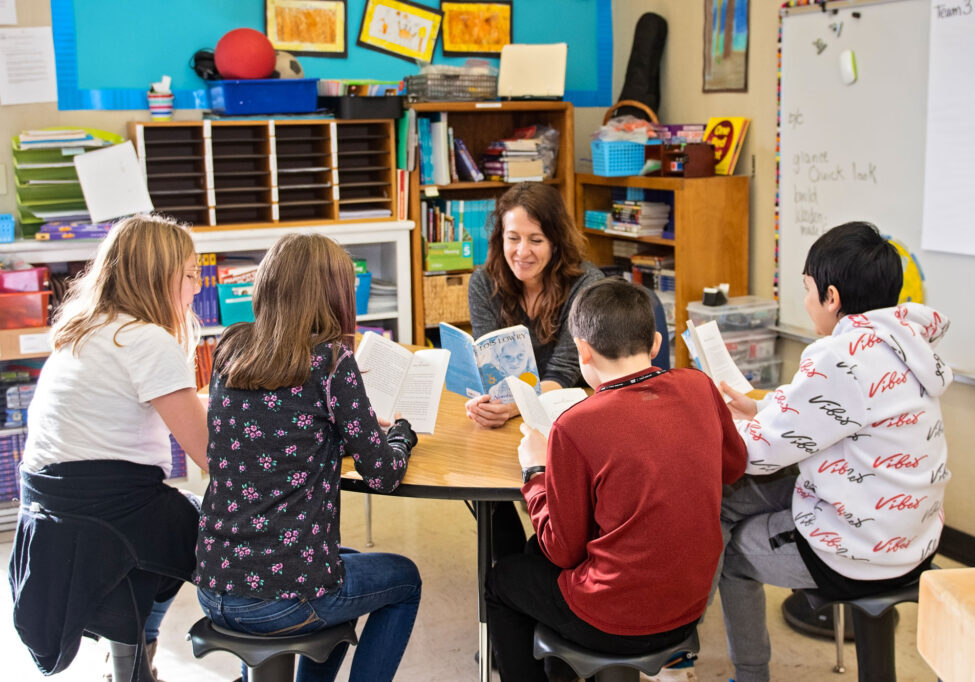 Not “flu shots.” Not “chore chart.” Not even “Grandpa’s sauerkraut.” No, the two words that most set my family moaning are these: Class project.
Not “flu shots.” Not “chore chart.” Not even “Grandpa’s sauerkraut.” No, the two words that most set my family moaning are these: Class project.
It happens a few times a year. My grade-schooler brings home an assignment that promises to mock my poor parenting skills even as it converts my dining room table into a wasteland of Sharpies, index cards and – often, for some reason – cotton balls.
Historic reports that lay waste to our weekends. Science projects that erupt in family arguments.
“I hate them,” says a friend of mine, a mother of three. “They get expensive, take a ton of time on top of regular homework and, honestly, I don’t see my kids learning a whole lot from it.”
That’s just the problem. I’ve never understood what exactly these projects are supposed to be teaching: planning? research? handicraft? Super! But I’m a lousy instructor for those things – which is why I send my child to school.
Why can’t I just educate him in laundry skills, phone etiquette and Egg-Scrambling 101? And his teachers can school him in finding the cultural contributions of Georgia, diagramming the human heart and building Egyptian pyramids out of sugar cubes.
I have great respect for parents who enjoy these projects – who clear their calendars, roll up their sleeves and deftly guide their kids from brainstorming to classroom set-up. But I also admire those who refuse to get involved at all. “We’ll wield the spray glue when necessary,” says another mother I know. “That’s it.”
It’s us anxious back-and-forthers that make projects so stressful on everyone. “I start off saying, ‘You need to do this project,’” says one mom, “but often by the end I feel so invested that I find myself saying, ‘Go to bed and I will finish it.’”
“It’s a balancing act,” explains another mother. “I don’t want my kids to feel less than capable of doing the work themselves – and I did already pass first and sixth grades. On the other hand I don’t want them to fall on their faces.”
But if the finished projects will be displayed before other parents, she says, “then you’d better plan to be involved – because the other parents will be. It’s a competition.”
It’s not the tension between families that gets me. It’s the tension within families. I know a mother who lives for class projects, and her oldest son does too. “He’s constantly striving to outdo his last one,” she says proudly. “Right now, he’s building a full size catapult.” But her younger boy has lower standards, so when the Xbox beckons, he simply declares his projects “good enough” and walks away, she says. “I must breathe very deeply at this point.”
What is the value in all this push and pull? (And why, as long as we’re asking, has there been a mini Mohawk village atop my clothes dryer for a full year? Are we ever allowed to throw these things away?)
I sought insight from a friend who teaches elementary school. “The point is the process, not the product,” she says. “There’s always one where you can tell the kid sat in the garage watching his engineer dad construct it – some parents just totally miss the point.”
In order to avoid that mistake, let’s all look for the opportunities inherent in our kids’ next take-home project. You might see it as a chance to re-learn something you’d forgotten. Or to keep your perfectionism in check. Me, I’m gonna pray the word “shoebox” shows up on the materials list. It’s hard to hate a mandate to buy footwear.
Posted in: Education
Comment Policy: All viewpoints are welcome, but comments should remain relevant. Personal attacks, profanity, and aggressive behavior are not allowed. No spam, advertising, or promoting of products/services. Please, only use your real name and limit the amount of links submitted in your comment.
You Might Also Like...

Northern Summit Academy Creates A Bridge Between School and Career
Northern Summit Academy, a tuition-free, public charter school in Anderson, focuses on helping its almost 200 students create goals for a future career and life after high school graduation. According […]

Help Your Child Build a Strong Foundation for Learning
Do you have a school age child who is struggling to learn to read or an older child with learning difficulties? Do you or your child find it difficult to […]

Getting All the Buzz on Bees at Orland’s Honeybee Discovery Center
Because one-third of all the food we eat is directly or indirectly dependent on honeybee pollination, bees and other pollinators are vital for human life. At Orland’s Honeybee Discovery Center, […]

Living History at Chapman Elementary School Library – Growing Compassion Through Literacy and History
Two dozen faces at Chapman Elementary School Library gazed in wonder as 98-year-old Ingrid Nielsen brought literature to life right before their eyes. “I was born and raised in a […]

College and Career Options — Services to Students of All Ages in the North State
The prospects for students starting to explore life after high school can be overwhelming, and families often need help knowing where to start. There are many options to weigh, from […]

Families That Grow Cooperatively – Building A Better Community … One Neighborhood And School At A Time
Sharing … involvement … community building … these are just some of the concepts that come to mind when describing a cooperative enterprise. Cooperative living arrangements and cooperative schooling are […]

